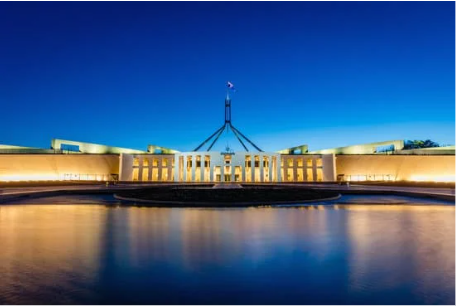Key Implications for Individuals, SMEs, Superannuation, and Foreign Residents
The Federal Budget for 2025-26 has been released, but for many of our clients, the impact is relatively minimal, with no significant new measures affecting small businesses or superannuation. Below is a summary of key announcements that would be made if the Labour government were re-elected.
For Individuals
- Future Personal Tax Cuts: From 1 July 2026, further reductions in tax rates may apply to low-income earners and for income generated between $ 18,201 and $45,000, which equates to a maximum of $536 from 1 July 2027.
The proposed tax cuts result in:
- A reduction to the 16% tax rate to 15% from 1 July 2026
- A reduction to the 15% tax rate to 14% from 1 July 2027
Below is a chart that confirms the new and existing tax rates for 2025, 2026 and 2027.
| Taxable Income
$ |
Rates in 2025/26 | Rates in 2026/27 | Rates in 2027/28 |
| 0 to 18,200 | Tax free | Tax free | Tax free |
| 18,201 to 45,000 | 16% | 15% | 14% |
| 45,001 to 135,000 | 30% | 30% | 30% |
| 135,001 to 190,000 | 37% | 37% | 37% |
| > 190,000 | 45% | 45% | 45% |
The above rates do not include the Medicare levy of 2%.
- Medicare Levy Low-Income Thresholds:
The Medicare levy low-income threshold will increase from 1 July 2024 for singles, families, seniors and pensioners.
The new thresholds are listed below:
| 2023/2024 | 2024/2025 | |
| Singles | $26,000 | $27,222 |
| Families | $43,846 | $45,907 |
| Single seniors and pensioners | $41,089 | $43,020 |
| Family seniors and pensioners | $57,198 | $59,887 |
- Cost of Living Relief: $1.8 billion allocated to extend energy bill rebates in the form of $150 annual rebates for eligible Australian households and small businesses until 31 December 2025.
- Student Loan Reforms: 20% reduction in outstanding HELP debts (pending legislation) and will also increase the repayment income threshold of $54,435 in 2024/25 to $67,000 in 2025/26. The reduction will be based on the current debt at the time the legislation is enacted.
For SMEs
- Instant Asset Write-Off: No extension beyond June 30, 2024, was announced in the Federal Budget. It remains in Parliament for the 2025 financial year, meaning the threshold will revert to $1,000 from 1 July 2024 unless further changes are made.
- Workplace Reforms: The Government plans to ban non-compete clauses for workers earning less than $175,000, effective July in 2027. For higher-income earners, additional protections will be considered, acknowledging that these roles often involve handling sensitive information and intellectual property considerations. For more, see here.
For Superannuation
No new measures were announced in the Federal budget for Superannuation; however, the following changes were already planned or in discussion.
- Payday Superannuation: From 1 July 2026, employers must pay Superannuation Guarantee contributions within seven days of paying wages rather than quarterly. Encourage all our clients to review their existing payroll system and processes to ensure they are ready for 1 July 2026. Consider your cash flow and think about how frequently you will pay your employees.
- Superannuation Guarantee Increase: Rising from 11.5% to 12% from 1 July 2025, marking the final scheduled increase.
- No New Superannuation Measures: The Government did not introduce new changes or provide clarity on the proposed tax on super balances exceeding $3 million. However, it’s worth noting that this remains a policy Labour will take to the election.
For Foreign Residents
- Foreign Investment Restrictions: A two-year ban on foreign individuals purchasing established residential properties, with limited exemptions. Exceptions to the ban will include new residential properties and investments that significantly increase the housing supply or support the availability of housing on a commercial scale, as well as purchases by foreign-owned companies to provide housing for workers under certain circumstances.
While this year’s Budget includes measures aimed at cost-of-living relief and taxation, there are no significant proposed changes that significantly impact SMEs, superannuation, or high-net-worth individuals. We will continue to monitor developments, and if any further announcements are made during the election campaign, we will provide updates.
For further details or advice tailored to your specific circumstances, please don’t hesitate to contact your Morrows advisor.





